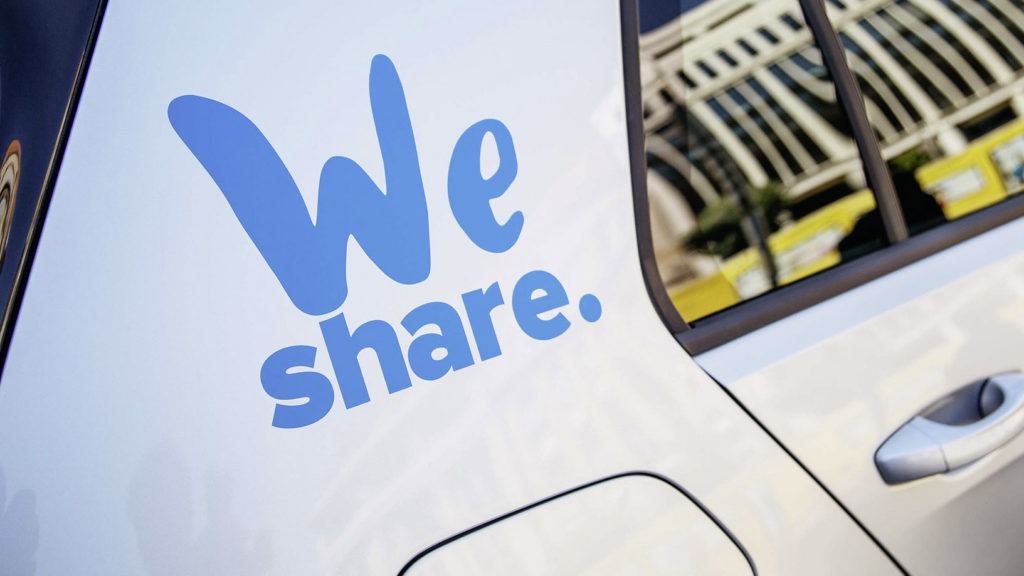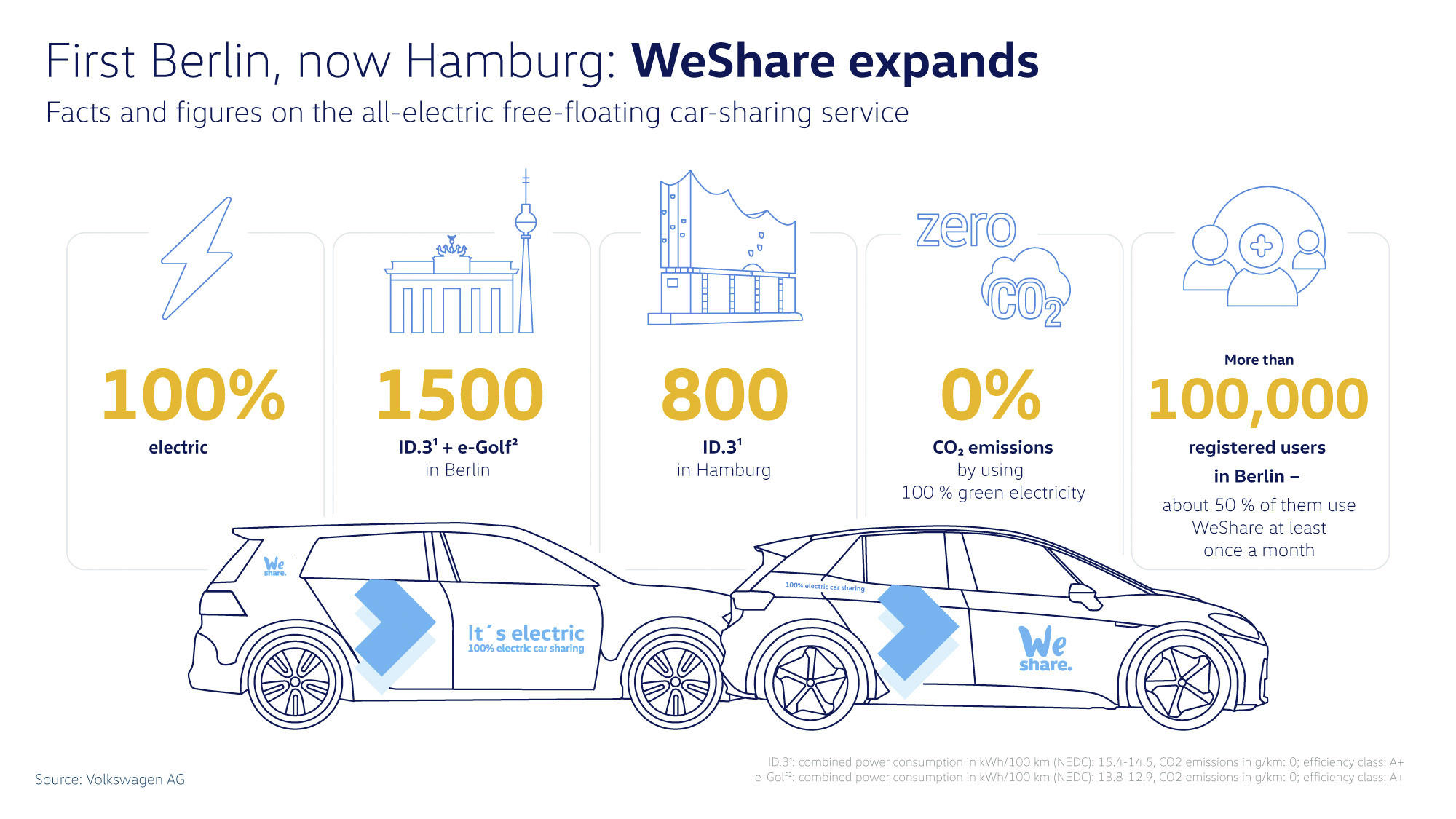VW pushes electromobility in Hamburg with WeShare
22 February 2021

22 February 2021
Volkswagen Group (VW) is unleashing WeShare in Hamburg this week after suffering several COVID-19 setbacks. The battery-electric vehicle (BEV) mobility service will initially introduce 400 units of the ID.3 to the city before doubling that number to 800 in April.
Recovering from a disastrous 2020 and looking ahead to a growing mountain of emissions targets, carmakers like VW are undergoing an electric metamorphosis. But the success of this transformation is dependent upon market uptake. Given the higher upfront price tag of BEVs, shared e-mobility could be the entry point that unlocks wider consumer adoption.
Finally underway
 Source: VW
VW points to the availability of the service as fundamental to proving to consumers that car-sharing is a safe and reliable addition to their mobility options. With the shortening of cleaning and disinfection intervals for vehicles, the carmaker hopes to prove that WeShare is not only available but safe.
Source: VW
VW points to the availability of the service as fundamental to proving to consumers that car-sharing is a safe and reliable addition to their mobility options. With the shortening of cleaning and disinfection intervals for vehicles, the carmaker hopes to prove that WeShare is not only available but safe.
Following its 2019 pilot project in Berlin, VW was hoping to launch WeShare in Hamburg last year but faced repeated COVID-19 setbacks. ′Due to the corona pandemic, we are unfortunately only able to launch in Hamburg with a delay of around one year. We are all the more pleased that things are finally getting underway,’ said Philipp Reth, CEO of WeShare, VW’s car-sharing service. The Hamburg launch will likely come as a massive relief to VW given that WeShare has only been in operation in Berlin since July 2019. Roughly half a year later, Europe was starting to feel the effects of the pandemic. Not only did empty car showrooms shutdown carmakers’ dreams of 2020 profitability, but the viability of mobility services never seemed further away as consumers avoided shared transportation at all costs. ′We had drops in rentals of around 50% in March 2020, in the first few weeks after the lockdown. During that time, there was virtually no ordinary demand for mobility,’ said Reth, explaining the situation about a year ago. Silver linings However, VW had to prove that WeShare would not be a total loss and so set out to find an opportunity amid the COVID chaos. ′We reacted quickly at the time, temporarily expanding the business area, reducing the stopover price, i.e. the price while parking, to five cents and, for example, distributing vouchers to staff at the Charité hospital, German Red Cross clinics and the Berlin accident and emergency hospitals,’ he said. This approach appears to have paid off as hospital employees alone used WeShare around 25,000 times, covering a quarter of a million kilometres. ′We gained many new fans and loyal users for WeShare. By the end of 2020, we had twice as many customers and utilisations [compared with] before the crisis began,’ Reth confirmed. WeShare now boasts 100,000 people registered in Berlin, around half of whom use the service once a month. This number is relatively impressive given that Germany is set to remain in lockdown until March, meaning the need to travel is severely reduced compared to when WeShare was first launched.Moin! We’re excited for the launch of our #WeShare service in #Hamburg on 25.2.2021. Up to 800 fully electric ID.3 will be available and it gets even better: if you register by 25.2. you will get the premium package WeShare+ for free in the first month and a 15€ starting credit. pic.twitter.com/6aiqYymi7y
″” WeShare Deutschland (@WeShare_DE) February 19, 2021
 Source: VW
VW points to the availability of the service as fundamental to proving to consumers that car-sharing is a safe and reliable addition to their mobility options. With the shortening of cleaning and disinfection intervals for vehicles, the carmaker hopes to prove that WeShare is not only available but safe.
Source: VW
VW points to the availability of the service as fundamental to proving to consumers that car-sharing is a safe and reliable addition to their mobility options. With the shortening of cleaning and disinfection intervals for vehicles, the carmaker hopes to prove that WeShare is not only available but safe.